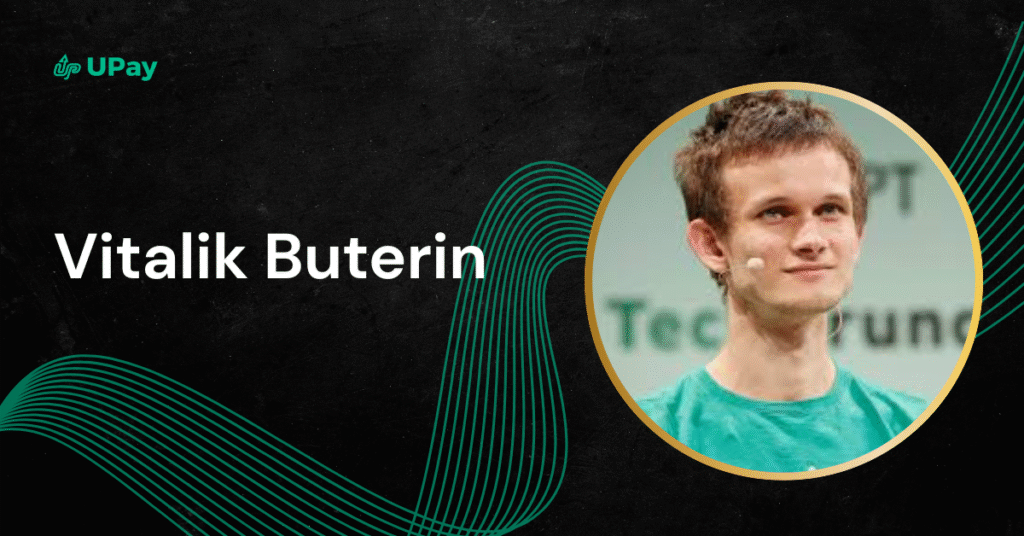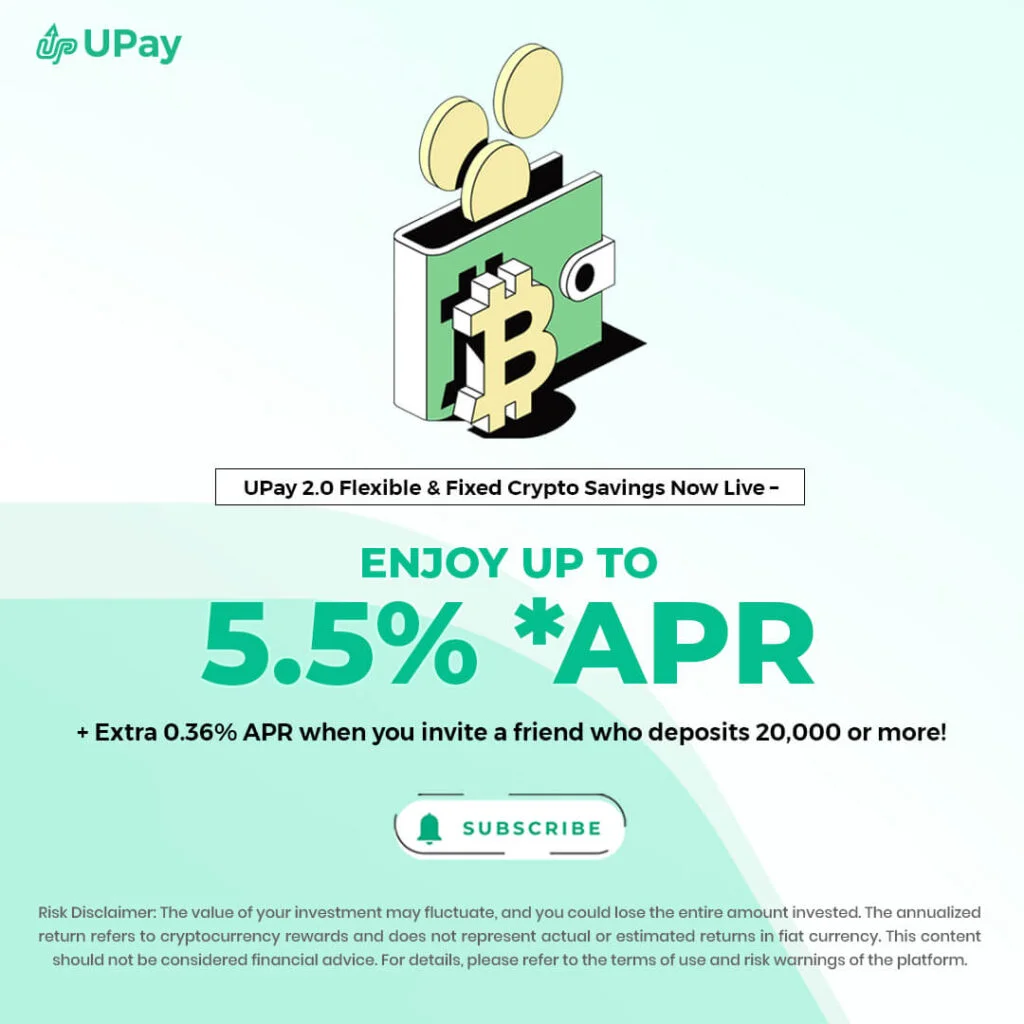“Blockchains will change how we organize the world.” That’s not a headline, it’s Vitalik Buterin’s belief. But who is Vitalik Buterin, and how did a teen coder become one of the most influential voices in tech and finance?
This article unpacks his journey, from publishing his first Bitcoin article to leading Ethereum’s evolution.
Key Takeaways
- Vitalik Buterin was born in Russia in 1994 and moved to Canada with his family at the age of six.
- He showed early talent in math, programming, and economics during his school years in Toronto.Vitalik won a bronze medal at the International Olympiad in Informatics in 2012.
- He learned about Bitcoin at 17 and started writing for Bitcoin publications soon after.
- He co-founded Bitcoin Magazine and became a leading voice in the crypto space.
- Vitalik began contributing to open-source crypto projects before proposing Ethereum in 2013.
Birth and Family Background
(Source: Familytron)
Vitalik Buterin was born on January 31, 1994, in Kolomna, a town near Moscow, Russia. His parents, Dmitry Buterin and Natalia Ameline, were both computer scientists. Dmitry had moved to Moscow at 17 to study computer science at the Moscow Institute of Electronic Engineering.
After working as a software engineer and business consultant, he co-founded his first business, Columbus Russia, in 1997. Vitalik’s early exposure to technology was influenced by his parents’ professions and interests.
At the age of four, he received his parents’ old IBM computer and began exploring Excel spreadsheets, which became one of his favorite tools. His fascination with numbers was evident early on; by age seven, he could recite over a hundred digits of pi and often engaged in mental math for fun.
In 2000, when Vitalik was six, the family emigrated to Canada in search of better opportunities. They settled in Toronto, where Vitalik’s father, Dmitry, continued his entrepreneurial journey, eventually founding Wild Apricot, a management software company for nonprofits.
Vitalik’s upbringing in Canada was marked by a blend of Russian heritage and Canadian culture. He was placed in a gifted program in elementary school, where he excelled in mathematics and programming.
Despite his academic strengths, he often felt isolated from his peers, which led him to immerse himself further in his interests.
Vitalik’s parents separated after moving to Canada, but both remained active in his life and the tech community. Dmitry founded BlockGeeks, a blockchain education platform, while Natalia co-founded CryptoChicks, an organization aimed at empowering women in blockchain.
Their continued involvement in technology and education provided Vitalik with a supportive environment to pursue his interests.
When I was in grade five or six, I just remember quite a lot of people were always talking about me like I was some kind of math genius. And there were just so many moments when I realized, like, okay, why can’t I just be like some normal person and go have a 75% average like everyone else.
Academic Journey
Vitalik Buterin attended The Abelard School, a private high school in Toronto known for its Socratic teaching method and emphasis on critical thinking. He studied there from grades nine through twelve.
The school’s approach to education helped him develop a strong interest in learning and a focus on understanding complex subjects. He excelled in mathematics, programming, and economics during his time at Abelard.
Buterin later credited the school for making him “want to learn, and to focus on learning as my primary goal.” In recognition of his achievements, The Abelard School established the Buterin Scholarship, funded by his generous donation, to support students who display exceptional achievement in math, science, and the humanities.
In 2012, Buterin represented Canada at the International Olympiad in Informatics (IOI) held in Italy, where he won a bronze medal. The IOI is a prestigious competition that tests the problem-solving and programming skills of high school students from around the world. Buterin’s performance placed him among the top young programmers globally.
After high school, Buterin enrolled at the University of Waterloo to study computer science. During his time there, he took advanced courses and worked as a research assistant for Professor Ian Goldberg, a renowned cryptographer known for co-creating
Off-the-Record Messaging and serving as the former chairman of the Tor Project’s board of directors. In 2014, Buterin was awarded a $100,000 grant from the Thiel Fellowship, a program that supports young people under 23 to pursue innovative projects outside of traditional academia.
He decided to leave the university to focus full-time on developing Ethereum, a platform for decentralized applications
Entry into Cryptocurrency
Vitalik’s journey into cryptocurrency started as a teenager, driven by a desire to understand and contribute to a new form of money.
Introduction to Bitcoin
Vitalik Buterin first encountered Bitcoin in 2011 when he was 17 years old. His father, Dmitry Buterin, a computer scientist, introduced him to the concept. At the time, Vitalik was skeptical about the idea of a currency without intrinsic value.
However, his interest grew as he delved deeper into the underlying technology and its potential applications. This curiosity marked the beginning of his journey into the world of cryptocurrencies.
Eager to learn more and contribute to the community, Buterin began writing for a publication called Bitcoin Weekly in 2011. He earned five bitcoins per article, which was approximately $3.75 at the time.
This experience not only provided him with a deeper understanding of Bitcoin but also connected him with others in the emerging crypto space.
Later that year, Buterin co-founded Bitcoin Magazine with Mihai Alisie. The magazine became one of the first publications dedicated to Bitcoin and cryptocurrencies.
As the lead writer, Buterin played a significant role in educating the public about blockchain technology and its implications.
Early Contributions
Beyond writing, Buterin actively contributed to various open-source projects in the crypto community. He worked on DarkWallet, a project aimed at enhancing privacy for Bitcoin users.
Also, he developed pybitcointools, a Python library designed to simplify Bitcoin-related programming tasks.
Buterin also collaborated on Egora, a cryptocurrency marketplace platform. These projects allowed him to apply his programming skills and gain practical experience in blockchain development.
In 2013, Buterin was offered an internship at Ripple, a company focused on real-time gross settlement systems and remittance networks.
However, he was unable to accept the position due to visa issues. This setback led him to focus more intently on his own ideas, eventually culminating in the development of Ethereum.
Blockchains are not meant to be static databases; they are meant to be dynamic ecosystems that provide a platform for innovation.
Founding of Ethereum
(Source: Pinterest)
Genesis of Ethereum
In late 2013, Vitalik Buterin introduced the concept of Ethereum through a white paper titled “A Next-Generation Smart Contract and Decentralized Application Platform.”
He envisioned a blockchain platform that extended beyond Bitcoin’s capabilities, allowing developers to build decentralized applications (dApps) using smart contracts. This idea aimed to create a more versatile and programmable blockchain ecosystem.
To bring Ethereum to life, Buterin collaborated with several individuals who became co-founders of the project. These included Gavin Wood, who developed the Solidity programming language; Charles Hoskinson, who contributed to the project’s early structure; Anthony Di Iorio, who provided initial funding; Joseph Lubin, who later founded ConsenSys; Mihai Alisie, who helped establish the Ethereum Foundation; and Amir Chetrit, who was involved in the project’s inception.
Together, they worked on developing the Ethereum platform and its underlying technology.
After months of development and testing, the Ethereum blockchain officially launched on July 30, 2015, with the release of its first version, known as “Frontier.” This launch marked the beginning of a new era in blockchain technology, enabling developers to create and deploy dApps on the Ethereum network.
The initial release laid the foundation for Ethereum’s growth and its role in the broader blockchain ecosystem.
Vision and Objectives
Ethereum was designed to be a decentralized platform that supports smart contracts and dApps. Smart contracts are self-executing agreements with the terms directly written into code, allowing for trustless and automated transactions.
This functionality aimed to eliminate the need for intermediaries in various industries, such as finance, supply chain, and real estate.
The Ethereum Virtual Machine (EVM) serves as the runtime environment for smart contracts on the Ethereum network. It allows developers to write and deploy decentralized applications using programming languages like Solidity.
The EVM ensures that smart contracts execute consistently across all nodes in the network, maintaining the integrity and reliability of the Ethereum ecosystem.
The technical side of Ethereum’s efficacy is 100% an engineering exercise.
Contributions to Ethereum and Blockchain
(Source: WAYA Media)
This section examines how Vitalik Buterin’s ideas and actions have helped Ethereum mature into one of the most influential platforms in blockchain.
Technical Innovations
In September 2022, Ethereum transitioned from a Proof-of-Work (PoW) to a Proof-of-Stake (PoS) consensus mechanism through an event known as “The Merge.” This change significantly reduced Ethereum’s energy consumption by approximately 99.95%, addressing environmental concerns associated with blockchain technologies. The shift also enhanced transaction stability and security on the network.
Vitalik Buterin has been a strong advocate for Layer 2 (L2) scaling solutions to improve Ethereum’s transaction throughput and reduce fees.
These solutions, such as rollups, process transactions off the main Ethereum chain and then record the results on the main chain, effectively increasing the network’s capacity and efficiency.
While promoting scalability, Buterin has also expressed concerns about the complexity of some L2 solutions.
He emphasizes the importance of maintaining simplicity in Ethereum’s design to minimize potential risks and ensure the network’s robustness.
Thought Leadership
In 2022, Vitalik Buterin published a collection of his writings titled “Proof of Stake: The Making of Ethereum and the Philosophy of Blockchains.” This book compiles essays from 2014 to 2022, offering insights into the development of Ethereum and Buterin’s perspectives on blockchain technology’s broader implications.
Buterin has also collaborated with economist Glen Weyl on examining blockchain’s role in funding public goods and governance.
Their joint work, “Liberation Through Radical Decentralization,” discusses how decentralized technologies can address societal challenges by promoting more equitable and participatory systems.
Together with Weyl and economist Zoë Hitzig, Buterin co-authored “A Flexible Design for Funding Public Goods,” proposing mechanisms like quadratic funding to support public goods through decentralized means.
This work aims to create systems that are responsive and avoid common issues like the free-rider problem, enhancing the provision of public resources.
Philanthropy and Social Impact
This section look into how Vitalik Buterin channels his crypto wealth into causes aimed at long-term impact and global well-being.
Major Donations
Vitalik Buterin has made significant contributions to various causes through cryptocurrency donations. In May 2021, he donated over $1 billion worth of SHIBA INU tokens to the India COVID-Crypto Relief Fund, marking one of the largest individual philanthropic acts in cryptocurrency history.
This donation aimed to support India’s efforts in combating the COVID-19 pandemic.
In addition to pandemic relief, Buterin has supported research initiatives. He donated approximately $336 million in Dogelon Mars tokens to the Methuselah Foundation, an organization focused on extending healthy human lifespan through regenerative medicine and tissue engineering.
This contribution supports the foundation’s mission to promote life extension research.
Buterin has also contributed to organizations like the Machine Intelligence Research Institute and the SENS Research Foundation.
These institutions work on artificial intelligence safety and strategies to combat aging-related diseases, respectively. His donations reflect a commitment to advancing scientific research and addressing global challenges.
Establishment of Kanro
Vitalik Buterin established Kanro, a philanthropic fund dedicated to supporting scientific research and public health initiatives.
Kanro focuses on areas such as pandemic preparedness, biosecurity, and indoor air quality. The fund has distributed over $400 million worldwide, emphasizing support for low- and lower-middle-income countries.
One notable initiative supported by Kanro is the development of open-source pathogen detection technology. In collaboration with Varro Holdings, Kanro provided $20 million to advance diagnostic tools aimed at curbing infectious disease transmission.
This partnership aligns with Buterin’s vision of decentralized healthcare and making essential diagnostic tools accessible globally.
Kanro has also funded research on Long COVID. The PolyBio Research Foundation received a $15 million grant from Kanro to support a second phase of research and clinical trials via the LongCovid Research Consortium.
This global collaboration aims to study the core biological drivers of Long COVID and develop effective treatments.
Support for Ukraine
(Source: Alex Bornyakov)
In response to Russia’s invasion of Ukraine in 2022, Vitalik Buterin publicly condemned the aggression and took steps to support Ukrainian civilians.
He donated 750 Ether (ETH), valued at approximately $2.5 million, to the Aid For Ukraine initiative, and another 750 ETH to the Unchain Fund, a charity created to support Ukraine with humanitarian aid.
Buterin also supported Ukraine DAO, a decentralized autonomous organization that raised nearly $8 million in less than a month for organizations and individuals assisting Ukrainians affected by the conflict.
His involvement helped amplify the DAO’s efforts and brought attention to the potential of crypto-based fundraising for humanitarian causes.
In a 2025 documentary titled “Vitalik: An Ethereum Story,” Buterin’s visit to Kyiv was highlighted, showcasing his commitment to supporting Ukraine.
During his visit, he met with Mykhailo Fedorov, Ukraine’s Minister of Digital Transformation, to discuss how crypto supported the country following Russia’s invasion, facilitating nearly $100 million in relief efforts.
Advocacy and Ideology
Vitalik Buterin is not only a builder but also a thinker, often engaging with the philosophical questions surrounding blockchain’s role in society.
Decentralization and Open Source
Vitalik Buterin has consistently championed the principles of decentralization and open-source development. He believes that decentralized systems empower individuals by reducing reliance on centralized authorities.
Ethereum, under his guidance, was designed to facilitate decentralized applications, allowing developers worldwide to contribute and innovate without central control.
Buterin emphasizes the importance of transparency in blockchain projects. By advocating for open-source protocols, he ensures that the Ethereum network remains accessible and verifiable by anyone.
This approach fosters trust and collaboration within the community, encouraging continuous improvement and adaptation.
Community-driven governance is another cornerstone of Buterin’s philosophy. He supports models where decisions are made collectively, reflecting the diverse interests of the Ethereum ecosystem.
This participatory approach aims to maintain the network’s integrity and align it with the broader goals of its users.
Political and Social Views
Buterin approaches political affiliations with caution, especially concerning the cryptocurrency industry’s alignment with specific political movements.
He warns against supporting politicians solely based on their pro-crypto stance, emphasizing the need to consider their broader values and policies.
He stresses that the foundational values of blockchain such as decentralization, privacy, and freedom, should not be compromised for short-term gains.
Buterin believes that the crypto community should remain vigilant against initiatives that, while seemingly beneficial, might undermine these core principles.
Furthermore, Buterin highlights the importance of internationalism in the crypto space. He points out that restrictive immigration policies can hinder the global collaboration essential for blockchain innovation. By advocating for more inclusive policies, he underscores the need for a truly global and diverse crypto community.
Honors and Accolades
In 2014, Vitalik Buterin was awarded the Thiel Fellowship, a $100,000 grant that supports young individuals pursuing innovative projects. This recognition allowed him to focus entirely on developing Ethereum, contributing significantly to its early success.
Buterin’s contributions to blockchain technology have been acknowledged by various institutions. In 2018, he received an honorary doctorate from the University of Basel, recognizing his work in advancing decentralized technologies.
His influence extends beyond academia. In 2018, Forbes included him in their “30 Under 30” list, highlighting young innovators making significant impacts in their fields.
Later, in 2021, Time magazine named him one of the 100 most influential people, acknowledging his role in shaping the future of the internet through blockchain.
Future Plans and What’s Next Vitalik Buterin
Vitalik Buterin’s future plans extend beyond Ethereum’s technical roadmap. He envisions a broader role for blockchain in addressing global challenges.
Collaborating with economist Glen Weyl, Buterin co-authored “Liberation Through Radical Decentralization,” advocating for blockchain’s potential in funding public goods and enhancing governance systems.
This work has influenced initiatives like Gitcoin Grants, which uses quadratic funding to support open-source projects.
Also, Buterin has contributed to discussions on artificial intelligence, emphasizing the importance of aligning AI development with human values. In May 2021, he donated $665 million to the Future of Life Institute, a nonprofit focused on mitigating existential risks from AI .
In his personal life, Buterin has shown a commitment to philanthropy and environmental conservation. In December 2024, he adopted Moo Deng, a baby pygmy hippo from Thailand’s Khao Kheow Open Zoo, donating nearly $294,000 to support the zoo’s wildlife programs.
This gesture reflects his appreciation for Thailand’s hospitality during Ethereum-related events and his broader interest in supporting animal welfare. Buterin’s philanthropic efforts also include significant contributions to COVID-19 relief and life extension research.
Looking ahead, Buterin aims to continue advancing Ethereum’s scalability and interoperability. The upcoming Prague-Electra (Pectra) upgrade, scheduled for early 2025, focuses on enhancing the network’s functionality through sharding and Layer 2 improvements.
Buterin emphasizes the importance of Layer 2 solutions, such as rollups, to increase transaction throughput and reduce fees. He also advocates for the integration of Verifiable Delay Functions (VDFs) to strengthen consensus mechanisms.
These initiatives aim to position Ethereum as a scalable and secure platform for decentralized applications.







